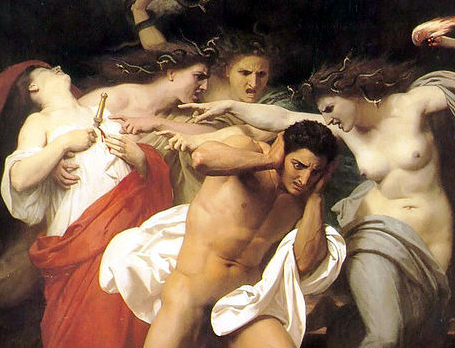 |
The EVOLUTION of MORALITY |
FRAME 15 |
 |
|
 |
> MORAL MOTIVATION OR INTENT (NEUROPHYSIOLOGY AND PSYCHOLOGY)
Darwin proposed the moral sense as an inevitable outcome of four elements: social instinct, memory, language and habit.
 In describing the evolution of humans in Descent of Man, Darwin (1871) prominently addressed mental and moral abilities. Following cultural discourse at the time, he focused on what he called the moral sense, or conscience, notably reflected in the emotion of remorse. "Why do we feel moral duty?" Darwin wondered. First, Darwin observed that animals could evolve societies, structured (he assumed) by a social instinct. Second, with multiple instincts, behavior might not always accord with social benefit. But memory, Darwin thought, would help resolve such conflicts as the organism learned to regulate its instincts, making the social instinct primary. Third, the use of language would allow organisms to communicate their needs clearly to one another. Fourth, repetition would lead to habit, and a spontaneous sense of what one "ought" to do. While incomplete and flawed in some respects, Darwin's early sketch remarkably identified many relevant variables and processes, discussed further below.
In describing the evolution of humans in Descent of Man, Darwin (1871) prominently addressed mental and moral abilities. Following cultural discourse at the time, he focused on what he called the moral sense, or conscience, notably reflected in the emotion of remorse. "Why do we feel moral duty?" Darwin wondered. First, Darwin observed that animals could evolve societies, structured (he assumed) by a social instinct. Second, with multiple instincts, behavior might not always accord with social benefit. But memory, Darwin thought, would help resolve such conflicts as the organism learned to regulate its instincts, making the social instinct primary. Third, the use of language would allow organisms to communicate their needs clearly to one another. Fourth, repetition would lead to habit, and a spontaneous sense of what one "ought" to do. While incomplete and flawed in some respects, Darwin's early sketch remarkably identified many relevant variables and processes, discussed further below.
|

 |
|
|